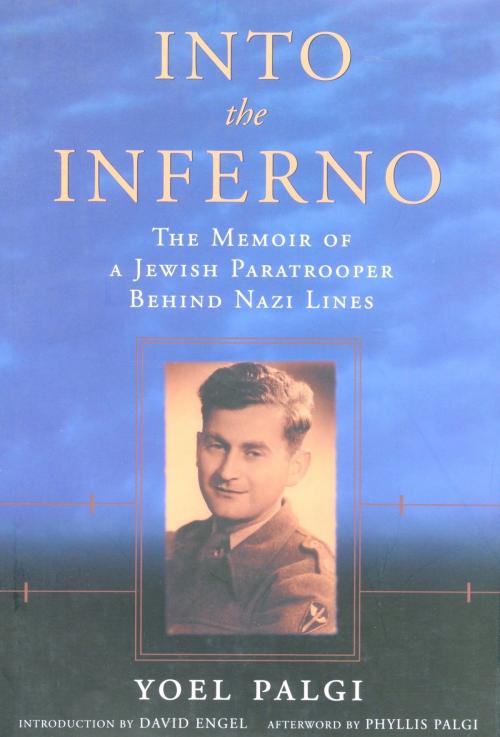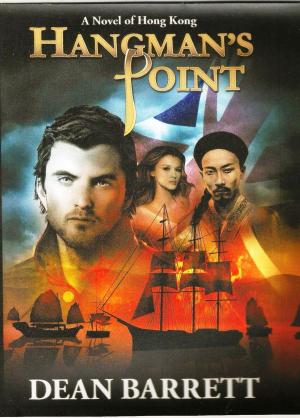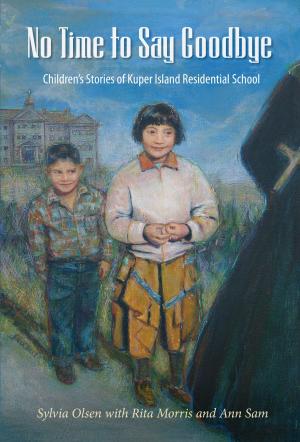Into the Inferno: The Memoir of a Jewish Paratrooper behind Nazi Lines
Nonfiction, History, Eastern Europe, Jewish, Holocaust, Biography & Memoir, Historical| Author: | Yoel Palgi, David Engel, Phyllis Palgi | ISBN: | 1230001287806 |
| Publisher: | Plunkett Lake Press/Rutgers University Press | Publication: | July 24, 2016 |
| Imprint: | Language: | English |
| Author: | Yoel Palgi, David Engel, Phyllis Palgi |
| ISBN: | 1230001287806 |
| Publisher: | Plunkett Lake Press/Rutgers University Press |
| Publication: | July 24, 2016 |
| Imprint: | |
| Language: | English |
In the spring of 1944, thirty-two young Palestinian Jews parachuted into Nazi-held Eastern Europe and the Balkans. Their goal was to encourage Jewish resistance where possible and to organize rescue schemes thwarting deportations to the death camps. Linking up in Yugoslavia and impelled by the hope that the Jews trapped in Hungary were still capable of fighting back, some of the volunteers set out for Budapest. Tragically, they were betrayed by their local guides, who turned out to be double agents also working for the Hungarian Fascists. The volunteers reached Budapest where the young woman volunteer, Hannah Szenes, was executed and another deported to a death camp.
Into the Inferno is the remarkable first-hand account of this mission by the only member of the group who miraculously survived from among those who penetrated into Hungary. He endured imprisonment and torture both by the Gestapo and the Hungarian Fascists, escaped from a deportation train, and joined the Zionist youth rescue underground in Budapest.
“In May 1944, Palgi was one of three Jews from Palestine who parachuted into Nazi-held Yugoslavia and headed for Hungary... His memoir... is an incredible account of this daring mission by its only survivor. Without a doubt, a vivid chronicle of bravery and compassion.” — George Cohen, ***Booklist***
“More than half a century has elapsed since [Yoel Palgi’s] paratrooper operations in occupied Europe. The world has appreciably changed since... Yet there are events, fragments of history, whose significance time and place do not alter. It seems that a special place in history is reserved for the story of this remarkable group of courageous Jews that did the impossible. It is vital that [this] story be told.” — Shimon Peres, Deputy Prime Minister and Minister of Foreign Affairs, Israel
“Palgi describes in riveting human terms an excruciatingly painful piece of Israeli and world history, and does so with extraordinary psychological and ethical insight.” — Robert J. Lifton, author of *The Nazi Doctors: Medical Killing and the Psychology of Genocide*
“This gripping account of a desperate rescue mission goes beyond conveying the horror of the Holocaust and the brutality of the Nazis. The rescuers worked within an ambiguity where every alliance was questionable and noble decisions could prove fatal. This is the illuminating story of a thoughtful man, driven by history to courageous improvisation and ethical struggle, acting and remembering in spite of uncertainty.” — Mary Catherine Bateson, author of *Full Circles, Overlapping Lives*
“Yoel Palgi’s story is one of heroism, inner conflict and questioning. His readiness to go behind the Nazi lines to rescue the Jews of Hungary reflected his extraordinary courage. He paints a vivid picture of the danger of his effort both behind enemy lines and the emotional scars that were left after the war. This is a must-read for any student of the Holocaust.” — **Dennis Ross**, Director, Washington Institute for Near East Policy
In the spring of 1944, thirty-two young Palestinian Jews parachuted into Nazi-held Eastern Europe and the Balkans. Their goal was to encourage Jewish resistance where possible and to organize rescue schemes thwarting deportations to the death camps. Linking up in Yugoslavia and impelled by the hope that the Jews trapped in Hungary were still capable of fighting back, some of the volunteers set out for Budapest. Tragically, they were betrayed by their local guides, who turned out to be double agents also working for the Hungarian Fascists. The volunteers reached Budapest where the young woman volunteer, Hannah Szenes, was executed and another deported to a death camp.
Into the Inferno is the remarkable first-hand account of this mission by the only member of the group who miraculously survived from among those who penetrated into Hungary. He endured imprisonment and torture both by the Gestapo and the Hungarian Fascists, escaped from a deportation train, and joined the Zionist youth rescue underground in Budapest.
“In May 1944, Palgi was one of three Jews from Palestine who parachuted into Nazi-held Yugoslavia and headed for Hungary... His memoir... is an incredible account of this daring mission by its only survivor. Without a doubt, a vivid chronicle of bravery and compassion.” — George Cohen, ***Booklist***
“More than half a century has elapsed since [Yoel Palgi’s] paratrooper operations in occupied Europe. The world has appreciably changed since... Yet there are events, fragments of history, whose significance time and place do not alter. It seems that a special place in history is reserved for the story of this remarkable group of courageous Jews that did the impossible. It is vital that [this] story be told.” — Shimon Peres, Deputy Prime Minister and Minister of Foreign Affairs, Israel
“Palgi describes in riveting human terms an excruciatingly painful piece of Israeli and world history, and does so with extraordinary psychological and ethical insight.” — Robert J. Lifton, author of *The Nazi Doctors: Medical Killing and the Psychology of Genocide*
“This gripping account of a desperate rescue mission goes beyond conveying the horror of the Holocaust and the brutality of the Nazis. The rescuers worked within an ambiguity where every alliance was questionable and noble decisions could prove fatal. This is the illuminating story of a thoughtful man, driven by history to courageous improvisation and ethical struggle, acting and remembering in spite of uncertainty.” — Mary Catherine Bateson, author of *Full Circles, Overlapping Lives*
“Yoel Palgi’s story is one of heroism, inner conflict and questioning. His readiness to go behind the Nazi lines to rescue the Jews of Hungary reflected his extraordinary courage. He paints a vivid picture of the danger of his effort both behind enemy lines and the emotional scars that were left after the war. This is a must-read for any student of the Holocaust.” — **Dennis Ross**, Director, Washington Institute for Near East Policy















